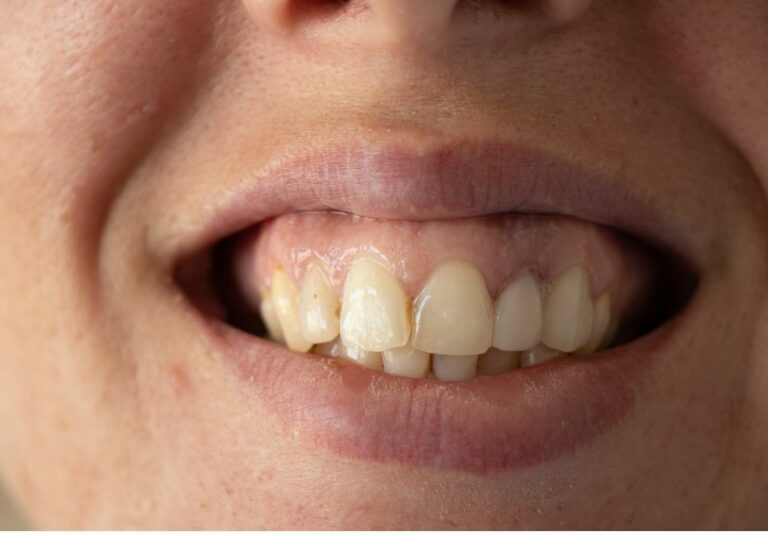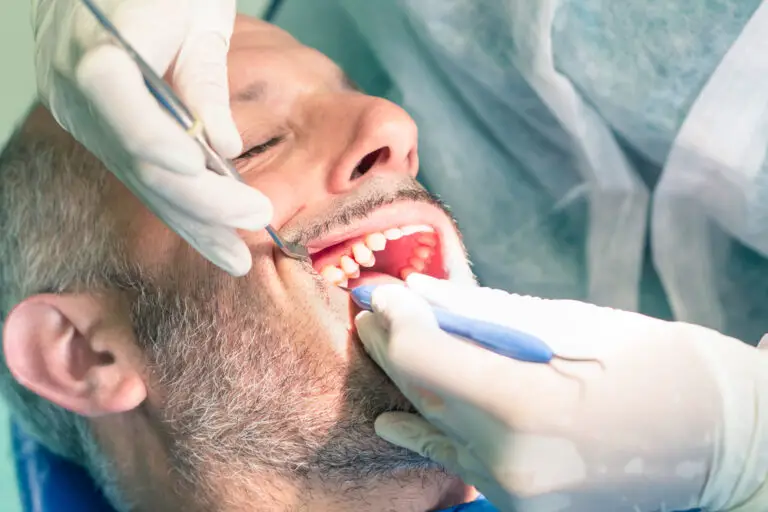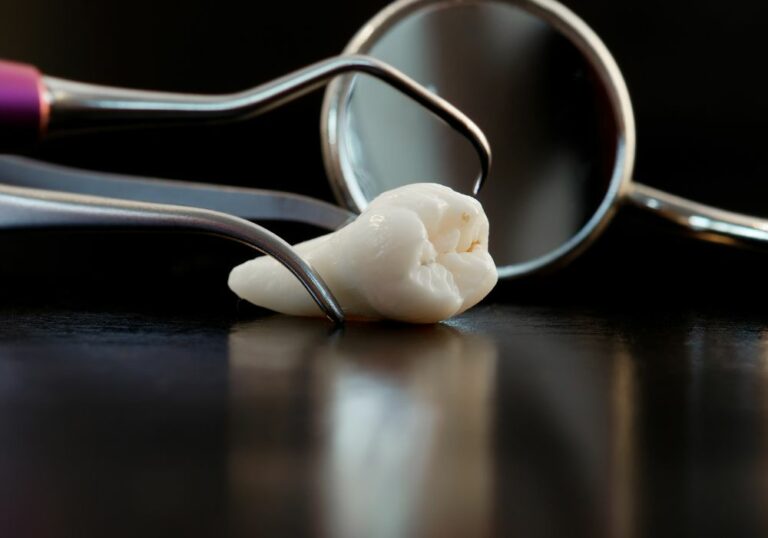When it comes to getting your wisdom teeth removed, it’s natural to have questions about what to expect. One of the most common questions people ask is how it feels when wisdom teeth come out. While it’s normal to feel some discomfort during and after the procedure, there are steps you can take to manage the pain and speed up your recovery.
During the procedure, you will be given anesthesia to numb the area around your wisdom teeth. This will help ensure that you don’t feel any pain or discomfort during the extraction. However, you may still feel some pressure or pulling sensations as the teeth are removed. After the procedure, you may experience some swelling, bleeding, and pain as your mouth heals. It’s important to follow your dentist’s instructions for managing these symptoms and taking care of your mouth in the days and weeks following the extraction.
Overall, the experience of having your wisdom teeth removed can vary depending on factors like your age, the position of your teeth, and your overall health. However, with the right preparation and care, you can minimize discomfort and ensure a smooth recovery.
Understanding Wisdom Teeth

Wisdom teeth are the last set of molars to emerge in the back of your mouth, usually between the ages of 17 and 25. They are also known as third molars. Most people have four wisdom teeth, but some may have fewer or none at all.
Wisdom teeth can cause discomfort and pain when they come in, as they push through the gums and jawbone. They can also cause problems if they don’t have enough room to grow, which can lead to impaction or infection.
It’s important to monitor your wisdom teeth as they emerge, and to see your dentist regularly for checkups. Your dentist may recommend an X-ray to determine the position of your wisdom teeth and whether they need to be removed.
Some common symptoms of wisdom teeth coming in include jaw pain, tender gums, and difficulty opening your mouth wide. You may also experience a bad taste in your mouth or bad breath. The pain is usually mild, but you may feel an occasional sharp pain.
If you experience any of these symptoms, it’s important to see your dentist as soon as possible. They can provide you with pain relief and help you determine the best course of action for your wisdom teeth.
In some cases, wisdom teeth may need to be removed to prevent further problems. Your dentist or oral surgeon can perform a wisdom tooth extraction procedure to remove one or more wisdom teeth. Recovery time is usually a few days, and your dentist will provide you with aftercare instructions to help you heal properly.
The Process of Wisdom Teeth Emergence
When you were a child, you had 20 primary teeth that eventually fell out and were replaced by 32 permanent teeth, including four wisdom teeth. Wisdom teeth, also known as third molars, typically emerge between the ages of 17 and 25, but some people may never develop them at all.
The process of wisdom teeth emergence can be uncomfortable for some people, while others may not even notice them coming in. Here’s what you can expect during this process:
Stage 1: Eruption
The first stage of wisdom teeth emergence is the eruption stage. During this stage, the wisdom teeth start to push through the gums and emerge into the mouth. This can cause some discomfort, including swelling, tenderness, and pain. You may also experience some bleeding as the gums stretch to accommodate the emerging tooth.
Stage 2: Cutting
The second stage of wisdom teeth emergence is the cutting stage. During this stage, the tooth continues to push through the gums and begins to cut through the surface of the gums. This can cause more discomfort than the eruption stage, as the tooth is now breaking through the skin. You may experience more swelling, pain, and bleeding during this stage.
Stage 3: Healing
The final stage of wisdom teeth emergence is the healing stage. Once the tooth has fully emerged, the gums will begin to heal around it. This can take several weeks, during which you may experience some discomfort and sensitivity. It’s important to keep the area clean and avoid irritating it to prevent infection.
Overall, the process of wisdom teeth emergence can be uncomfortable, but it’s a normal part of growing up. If you experience severe pain, swelling, or bleeding, be sure to consult your dentist, as these may be signs of an infection or other complication.
Physical Sensations of Wisdom Teeth Coming Out

When your wisdom teeth start to come out, you may experience a range of physical sensations. Here are some of the most common:
Pain and Discomfort
As your wisdom teeth push through your gums, you may feel a dull, aching pain in your jaw. This pain can also spread to your ears, neck, and shoulders. In some cases, you may experience sharp, shooting pains that come and go. This discomfort can make it difficult to sleep, eat, and speak.
Swelling and Inflammation
As your wisdom teeth come in, they can cause your gums to become swollen and inflamed. This can make it difficult to open your mouth fully and can also cause your cheeks to puff out. In severe cases, the swelling can spread to your neck and cause difficulty breathing.
Difficulty in Eating
When your wisdom teeth start to come in, you may find it difficult to eat certain foods. This is because the new teeth can make it difficult to chew and swallow. You may also experience sensitivity to hot and cold temperatures.
To alleviate these symptoms, you can try using over-the-counter pain relievers, such as ibuprofen or acetaminophen. You can also apply a cold compress to your face to reduce swelling. If your symptoms are severe or persist for more than a few days, you should consult your dentist or oral surgeon.
Overall, the physical sensations of wisdom teeth coming out can be uncomfortable, but they are a normal part of the tooth development process. With proper care and treatment, you can manage your symptoms and ensure that your new teeth come in smoothly.
Emotional Responses to Wisdom Teeth Emergence
The emergence of wisdom teeth can cause a range of emotional responses. For some people, it can be an exciting milestone, while for others, it can be a source of anxiety or discomfort. Here are some common emotional responses to wisdom teeth emergence:
Excitement
For many people, the emergence of wisdom teeth is an exciting event. It can be a sign that they are growing up and becoming more mature. Some people may even see it as a rite of passage. If you are excited about your wisdom teeth emergence, you may want to share the news with your family and friends.
Anxiety
On the other hand, some people may feel anxious about their wisdom teeth emergence. This is especially true if they have heard stories about the pain and discomfort that can come with it. If you are feeling anxious, it’s important to remember that everyone’s experience is different. Some people may not experience any pain or discomfort at all.
Discomfort
While not everyone experiences pain or discomfort when their wisdom teeth emerge, it is a common occurrence. The discomfort can range from mild to severe and may include soreness, swelling, and difficulty opening your mouth. If you are experiencing discomfort, there are a few things you can do to alleviate it, such as taking pain relievers and using ice packs.
Curiosity
Some people may feel curious about their wisdom teeth emergence. They may want to know more about the process and what to expect. If you are curious, you can talk to your dentist or do some research online to learn more.
Overall, the emotional responses to wisdom teeth emergence can vary widely. Whether you are excited, anxious, or curious, it’s important to remember that everyone’s experience is different. If you are experiencing discomfort, don’t hesitate to reach out to your dentist for advice and support.
Managing the Feelings When Wisdom Teeth Come Out

If you’re about to have your wisdom teeth removed, you may be wondering how it’s going to feel and what you can do to manage any pain or discomfort. Here are some tips to help you manage your feelings during and after the procedure.
Pain Management
After the procedure, you may experience some pain and discomfort. Your dentist or oral surgeon will likely prescribe pain medication to help manage the pain. Be sure to take the medication as directed and don’t skip any doses. You should also avoid drinking through a straw or smoking, as this can cause dry sockets and delay the healing process.
Applying ice packs to your cheeks can also help reduce swelling and discomfort. Wrap a bag of ice in a towel and apply it to your cheeks for 20 minutes at a time, with 20-minute breaks in between.
Emotional Support and Care
Having your wisdom teeth removed can be a stressful experience, and it’s important to take care of yourself emotionally as well as physically. Here are some tips to help you cope:
- Talk to someone you trust about your feelings. This can be a friend, family member, or therapist.
- Take time off work or school to rest and recover.
- Eat soft, nutritious foods and drink plenty of water to stay hydrated.
- Avoid alcohol and caffeine, which can interfere with your recovery.
- Rest as much as possible and avoid strenuous activity.
Remember that everyone’s experience is different, and it’s normal to feel anxious or uncertain about the procedure. By taking care of yourself physically and emotionally, you can help ensure a smooth recovery and a positive outcome.
Long-Term Effects of Wisdom Teeth Emergence
After your wisdom teeth emerge, you may experience some long-term effects. Here are some things to keep in mind:
- Crowding: If your jaw is too small to accommodate your wisdom teeth, they may push your other teeth out of alignment, causing crowding. This can lead to further dental problems down the line, such as tooth decay and gum disease.
- Impaction: If your wisdom teeth are impacted, meaning they are unable to fully emerge from your gums, they can cause pain and swelling. Impacted wisdom teeth can also increase your risk of infection and tooth decay.
- Oral hygiene: It is important to maintain good oral hygiene after your wisdom teeth emerge. Be sure to brush and floss regularly, and visit your dentist for regular checkups and cleanings. This will help prevent tooth decay and gum disease.
- Anesthesia risks: If you had your wisdom teeth removed under general anesthesia, there is a small risk of complications, such as allergic reactions or breathing problems. Be sure to follow your dentist’s instructions for post-operative care to minimize these risks.
Overall, the long-term effects of wisdom teeth emergence can vary depending on your individual situation. It is important to work closely with your dentist to monitor your oral health and address any issues that may arise.
Frequently Asked Questions
What are the symptoms of wisdom teeth coming in?
When your wisdom teeth start to come in, you may experience some symptoms such as pain, swelling, and tenderness in the back of your mouth. You may also notice that your gums are red and inflamed in the area where the wisdom teeth are coming in.
Does it hurt when wisdom teeth are coming out?
Yes, it is common to experience some discomfort and pain when your wisdom teeth are coming out. However, the level of pain can vary depending on the individual and the severity of the impaction.
How long does it take for wisdom teeth to erupt?
Wisdom teeth typically start to erupt between the ages of 17 and 25. The process can take several months to complete, and the timing can vary from person to person.
What can I do to relieve wisdom tooth pain?
There are several things you can do to relieve wisdom tooth pain. Over-the-counter pain relievers such as ibuprofen or acetaminophen can help reduce pain and inflammation. Applying a cold compress to the affected area can also help relieve pain and swelling. Rinsing your mouth with warm saltwater can also help reduce inflammation and promote healing.
Do all wisdom teeth need to be removed?
Not all wisdom teeth need to be removed. If your wisdom teeth are healthy, fully erupted, and properly positioned, they may not need to be removed. However, if your wisdom teeth are causing problems such as pain, infection, or damage to other teeth, your dentist may recommend removal.
At what age do wisdom teeth typically come in?
Wisdom teeth typically start to come in between the ages of 17 and 25. However, the timing can vary from person to person, and some people may never develop wisdom teeth at all.






